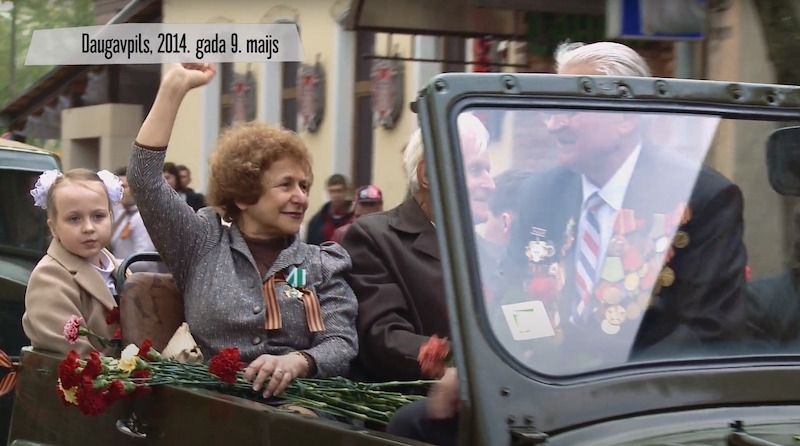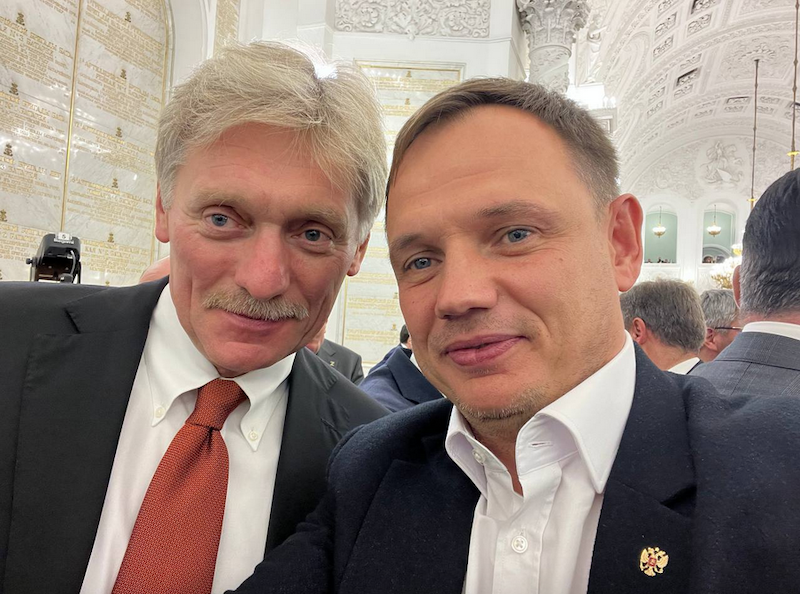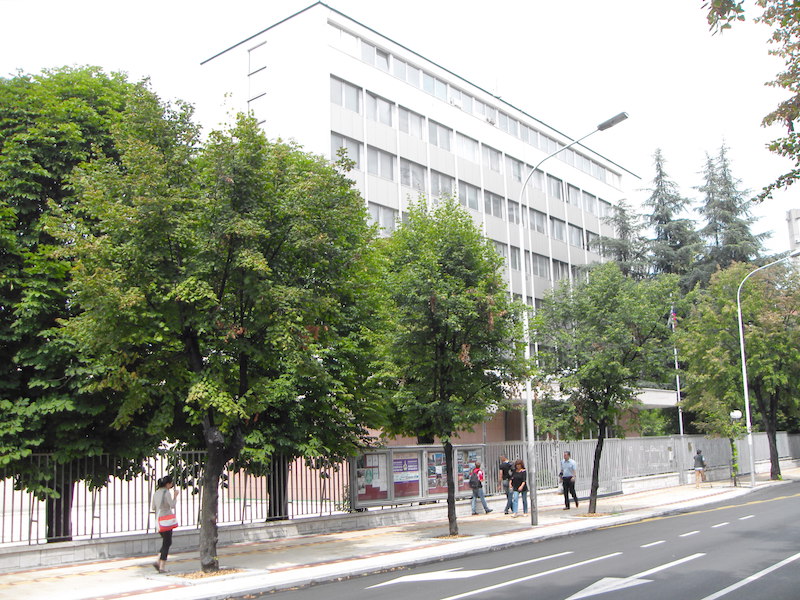Hi from Skopje,
As the fighting rages in Ukraine, a much more clandestine conflict is happening right under our noses.
Straight out of the Cold War handbook, security services across Europe are being forced to step up their efforts and root out Kremlin agents, who are harming the national and shared interests in the EU and its neighbours, stealing security data, undermining democracies, exploiting weaknesses, distributing fake news and sowing discord.
Hundreds of alleged agents have been expelled. Many are facing inquiries and trials. It is “Us and Them” all over again.
Moscow calls this a witch-hunt, and a return of McCarthyism. Coming from the Kremlin, such a remark can easily be disregarded.
But as a general warning, there is an important point here. We must not let democracy be an excuse for malicious actors. But we must also not compromise democracy and give in to mass hysteria and show trials.
I invite you to delve into some cases from across Europe, which we hope will provoke real thought over this serious issue.
Sinisa Jakov Marusic,
this week’s Editor-in-Chief

“James Bond is romanticised. Real life is much tougher. There is no happy end,” Alexey Vasilev told me.
It was late summer six years ago and we were talking between a glass wall in a prison in north-east Estonia, where Vasilev was serving a four year sentence for spying against Estonia on behalf of the Russian Federal Security Service (FSB).
He wasn’t a master spy. In fact, he was caught trying to conduct the first task his coordinators had given him. He had lost his income, his mother had been forced out of her apartment in St Petersburg, and he had legal bills to cover. Only 21 years old, he had lost his perspective in life.
I have interviewed people like Vasilev before and since, but this was the only time I actually felt sad about a Russian intelligence agent.
I remembered about Vasilev when we broke the news last week about how Latvia’s MEP Tatyana Zhdanok worked on behalf of the FSB’s Fifth Service. The contrast between Zhdanok and Vasilev couldn’t be larger.
Whereas Vasilev was a naive student hoping to become James Bond, Zhdanok has been blatantly pushing and promoting Kremlin ideology in the heart of the European Union for decades. She was not motivated by money, but by ideology. Throughout that time, the European Parliament’s impunity and Latvia’s inadequate legal system have protected her from prosecution.
Luckily, the outcry from fellow MEPs and the president of the European Parliament, Roberta Metsola, has been vocal (unlike when we revealed a few months ago that Russia’s top diplomat at the EU is suspected of carrying out Russian intelligence functions in Brussels).
Still, Zhdanok will probably come out of this scandal with barely any condemnation. Hopefully, being outed as an FSB agent will at least deter someone else from chasing Bond-like dreams that never come true.

Hundreds of Russian diplomats have been expelled from the EU since the start of Russia’s full-scale invasion of Ukraine. Some 70 had to leave Germany for another shady reason: it’s claimed they used their diplomatic immunity to illegally gather information for the Russian secret services.
The presence of Russian agents disguised as diplomats in Germany has been an open secret for years. For a long time, however, the government in Berlin didn’t dare act against them, fearing Russia would retaliate by expelling real German diplomats.
It comes as no surprise that Germany, as an arms supplier to Ukraine and a training centre for Ukrainian soldiers, is a main target of Russian espionage. Experts estimate there are as many agents working in Germany today as during the Cold War. They will increasingly resort to undercover methods again.

A common view of a spy is someone highly intelligent, successful, ambitious and, due to their side hustle, rich.
This may be true in peace-time or in movies, but when the enemy is at the gates, or has already invaded, most spies are different. They aren’t dolled up in tuxedos, sipping Vodka Martinis and driving a gadget-decked Aston Martin, but opportunistic misfits sensing injustice, fearing poverty and prone to greed.
This is what happened in Ukraine when Russia invaded in 2022.
While the Ukrainian military was on the move, the occupiers had to assess the best targets around the country, so needed eyes on the ground. They enlisted hundreds of locals, focusing on those who felt disadvantaged since Ukraine’s independence.
These were Soviet nostalgists, prone to conspiracy theories, and those who were successful many years ago, but had since lost their wealth and influence. Russians promised to bring them from rags to riches as soon as they came to power.
In the occupied areas, such people became collaborators. The last two years of the temporarily occupied regions of Ukraine are dotted with such examples. Here are two of them.
Kyrylo Stremousov used to be a fringe journalist in Kherson, pushing USSR nostalgia and spreading Covid denialism. In spring 2022, he became deputy governor of the occupied Kherson region. Six months later, while the town was still under Russian control, he died in a suspicious car crash.
Liudmyla Byeloushchenko used to be a cinema director in Kakhovka, a now-occupied town on the Dnipro. In the 1990s, Kakhovka couldn’t afford a municipal cinema, so Liudmyla started selling apples on the local market to get by. When the Russians came, she agreed to lead the town’s cultural centre, to help spread Russian propaganda.
The takeaway for other countries is short: paying attention to the disenfranchised pays off, so they won’t become your enemy’s allies in the future.

While Russian embassies in neighbouring countries shrunk due to the expulsion of diplomats suspected of breaching protocol, Moscow’s mission in Serbia has grown since the start of the full-scale war in Ukraine.
Moreover, a Radio Free Europe investigation in March 2023 suggested that at least three diplomats who were blacklisted by EU member states had resurfaced in Serbia. Leaked documents appeared to show these diplomats had ties to Russian intelligence.
They are still recognised by the Serbian Ministry of Foreign Affairs, which means they’re still in Serbia.
Since the beginning of the war, Russia has increased its staff in Belgrade from 54 diplomats in February 2022 to 68 in February this year, Serbian Foreign Affairs Ministry data shows.
“Increasing the number of diplomats usually means that this country is very important and the activities in that country are increasing, whether they are legal or illegal,” says Predrag Petrovic, research director at Belgrade Center for Security Policy.
Another RFE revelation alleges that a Russian diplomat and alleged spy expelled by the European Union for “illegal and disruptive actions” was serving as a long-term election observer of the Belgrade OSCE mission.
After the Serbian early parliamentary and local elections in December 2023, the opposition held protests because of irregularities in the vote, which were also confirmed by the domestic NGO CRTA and the OSCE election observation mission.
Serbian PM Ana Brnabic said the state had collected information about these demonstrations from foreign intelligence agencies, especially the Russians.
“This sends the message that Serbia is closely tied to Russia in terms of intelligence as well,” says Petrovic.
These examples back up claims that Serbia is Moscow’s regional proxy and a “small Russia in the Balkans”, which is certainly bad, Petrovic adds.
Thanks for reading the 60th edition of European Focus,
There is something alluring in the clandestine world of international espionage: cold and exciting, mysterious and deceitful. No wonder much of our popular fiction is filled with spy thrillers where the likes of Roger Moore, Matt Damon and Tom Cruise choose a life of deception and intrigue.
Yet, I would leave charm, mystery and thrills for leisure time and not confuse this with reality, where agents working for your enemy can claim lives, determine the outcome of wars close to home, and undermine democracies.
“It is ten thousand times cheaper to pay the best spies lavishly than even a tiny army poorly,” said Sun Tzu.
Does he have a point? What do you think?
See you next Wednesday!
Sinisa Jakov Marusic





